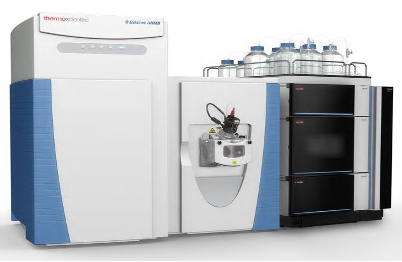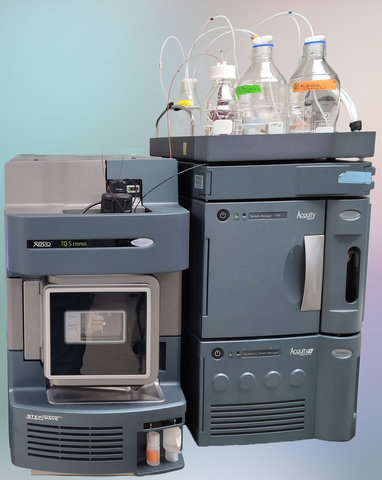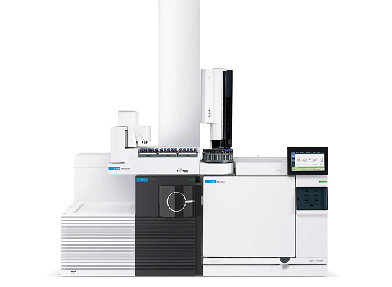Breadcrumb
- Home
- Services and Instruments
Services and Instruments
Main navigation
Services
The High Resolution Mass Spectrometry Facility (HRMSF) provides high resolution mass spectrometry services for researchers at the University of Iowa and across the United States. Using high resolution mass spectrometers, we can obtain accurate mass measurements to determine the elemental compositions of new synthetic molecules, metabolites, and natural products. We can also perform tandem mass spectrometry (MS/MS) experiments, which are used to assist in the structure determination of unknown molecules and quantitative analysis at trace levels. We have three mass spectrometers available (both GC-MS and LC-MS) for on-campus researchers. Open access instruments are available to those on-campus who have been trained by the HRMSF staff. Presently we serve researchers in over 35 research groups from six different colleges within the University of Iowa.
The HRMSF staff is available for consultation with researchers to develop mass spectrometry strategies to resolve research problems. Most samples require 15 to 60 minutes of analysis time. We charge on an hourly rate of $80 for UI researchers. Charges for open access instrumentation usage are lower (please see our service rates below for more detailed information). Mass spectrometry services are also available to non-University of Iowa researchers at a somewhat increased rate. (Please contact HRMSF staff).
Service Rates
| Instrument | Service | Rates | ||
| University of Iowa | Non profit | Industrial | ||
| Agilent 7250 GC/Q-TOF | HR GC-MS Training Analysis by user | $80/hour* $200 $40/hour | $124 | $150 |
| Thermo Q Exactive | HR-ESI HR LC-MS ESI-MS Training LC-MS Training Analysis by user | $80/hour* $80/hour* $80 $200 $40/hour | $124 $124 | $150 $150 |
| Xevo TQ-S cronos | LC-MS LC-MS Training Analysis by user | $80/hour* $200 $40/hour | $124 | $150 |
Rates effective as of July 1st, 2025
* Staff-operated fees cover the time spent developing methods, handling samples, running instruments, and analyzing data.
** NOTE: A daily setup fee of $10 will be charged for LC-MS analyses performed by users.
Instrumentation
The HRMSF currently has three mass spectrometers:
Thermo Q-Exactive (Orbitrap)

A Thermo Q-Exactive was installed in January 2020 and purchased with funds from the NSF Major Research Instrumentation and the Chemical Instrumentation Programs (1919422). The Q-Exactive is an Orbitrap mass spectrometer capable of very high resolution measurement of mass-to-charge ratios and tandem mass spectrometry (MS/MS), that will support the identification and quantification of novel products and processes. Samples can be directly infused to the instrument or pre-separated by ultra performance liquid chromatography (UPLC). An on-line diode array detector (DAD) enables compound detection by ultraviolet and visible (UV-Vis) light prior to MS detection.
Waters Xevo TQ-S cronos

In February 2020, we installed a Waters Xevo TQ-S cronos which is a triple quadrupole mass spectrometer interfaced with an Acquity H-Class UPLC. This LC-MS is mainly used for its multiple reaction monitoring (MRM) capabilities trace level quantitative analysis. The TQ-S also has other MS/MS scanning capabilities that allow us to run precursor (parent) ion scans, product (daughter) ion scans, and constant neutral loss scans, all of which can be used for structure elucidation.
Agilent 7250 GC Q-TOF

The Agilent 7250 GC/Q-TOF system delivers full-spectrum, high-resolution, accurate mass data with a wide dynamic range for identifying and quantifying GC-amenable compounds. The 7250 GC Q-TOF enables accurate mass screening by GC/MS, enhanced compound identification through MS/MS, and low energy electron ionization.
Submit a Sample
External samples welcome. Contact Lynn Teesch (Lynn-Teesch@uiowa.edu) or Vic Parcell (Vic-Parcell@uiowa.edu) for more information.
Training
After a brief training session, interested University researchers have the opportunity to analyze their own samples on the any of the mass spectrometers. Slightly more involved training is necessary when learning to perform LC-MS, MS-MS, and HR-MS experiments. Numerous graduate students, staff, and postdocs from Chemistry, Pharmacy, Human Toxicology, and other departments and colleges across campus are trained to operate the mass spectrometers each year.
Request for Mass Spectrometry Training Advisor Approval form
More Information
For more information please contact us by either the telephone number or the email addresses listed on our contact information page.